Resolving time management issues is often misconceived as a simple matter of organizing daily tasks. Having worked with many clients from 20 different countries and many levels of seniority, it’s clear that we need to update our beliefs and our practices around time management.
Traditional time management literature suggests making heavy use of lists, focusing on One Thing, or resorting to approaches like the Rock, Pebble, and Sand Method and, last but not least, making extensive use of the highly popular Eisenhower Matrix to determine what’s important vs. what’s urgent. While these tools can be helpful, they are tactical and probably better suited for the times they were created. A time when technology did not play the role it plays today when people did not work from home across countries and time zones. The Future of Work calls for a novel and more sustainable approach to time management. We must confront the underlying causes behind disorganization, overwork, and procrastination, which make current business levels unsustainable and unhealthy.
External and internal factors influencing time management
Have you ever asked yourself why some tasks never managed to get done?
Is it fear of failure, lack of knowledge, or competing priorities that hold you back?
The answer is likely to differ for each of us. To truly grasp the complexities of time management, it’s essential to recognize the multiple factors that come into play, both from external and internal perspectives. We must take the time to dig deeper and go beyond adopting tactical tools to embrace new behaviors and create new sustainable habits.
External factors often stem from the immediate environment and organizational structure, creating hurdles that are sometimes beyond individual control. We can’t control them, but we can at least seek to influence them. These range from workflow dependencies that lead to delays across teams to cultural differences in perceptions of time and punctuality. We can often expand our degree of influence by increasing our communication effectiveness.
On the other hand, internal factors are profoundly personal and rooted within individuals, including personality traits, motivational levels, and deeply entrenched core beliefs. Understanding these root causes helps develop more robust and tailored strategies for managing time.
Working with my clients, I have identified a list of likely culprits that wreck productivity and make time management challenging. These external and internal dynamics often play pivotal roles in shaping our calendars. As you review the list, consider which one sounds too familiar to ignore.
The Most Common External Factors:
- Workflow dependencies cause delays that cascade through teams.
- Distractions from superiors or a barrage of unplanned requests that disrupt one’s working plan.
- A lack of technical skills or specific knowledge hinders productivity; for example, clients may reduce the time it takes to get something done once they master a software package they’ve been neglecting to learn.
- Hybrid work, poorly defined schedules, and poorly defined routines.
- “Always on” expectations of just-in-time availability across time zones
- Cultural attitudes towards time and punctuality vary significantly across different countries.
- A culture of letting too many meetings clog everyone’s calendar and poor meeting management
The Most Common Internal Factors:
- Personal traits such as punctuality stemming from personality types
- Motivational issues are often tied to poorly defined roles, lack of recognition, and promotions without clear KPIs and OKRs.
- Deep-seated beliefs and values about one’s worth create significant barriers to managing time effectively.
- Inability to say no, fear of disappointing.
- Fear of not doing enough
- Desire to be seen as the irreplaceable, the office hero who “saves the day”
- Inability to communicate effectively one’s boundaries
Addressing these factors requires a close examination of one’s core beliefs, priorities, and values around work and life. When my clients try to minimize the impact of their overwhelm and overwork I often share the stern words of Canadian Physician Dr. Gabor Maté. “If you don’t say no, your body will say it for you.”
The need for a holistic approach
Effective time management is less about managing time and more about becoming curious about our productivity, habits, and the internal and external factors that twist our diaries. It must start with a firm commitment to finding sustainable practices that take into account our preferences, energy, as well as the job to be done.
Often, it involves delving into deep-seated beliefs that govern our behaviors facing a truth that we may sometimes prefer to ignore. Very frequently, it’s not a quick fix or a “hole in one”; it’s a progressive conversation with ourselves and the people around us that aims to reclaim chunks of time from our calendar wherever we can.
By transforming our approach from tactical to strategic, from short-term fixes to long-term planning, we not only improve our productivity but also our satisfaction and effectiveness at work and in life.
This article is part of the Precision Matters series. In the series, HR and L&D leaders share their expert strategies for utilizing Learning & Development tools to craft precise, impactful business outcomes and foster organizational growth.
Ready to turn insights into impact?

















